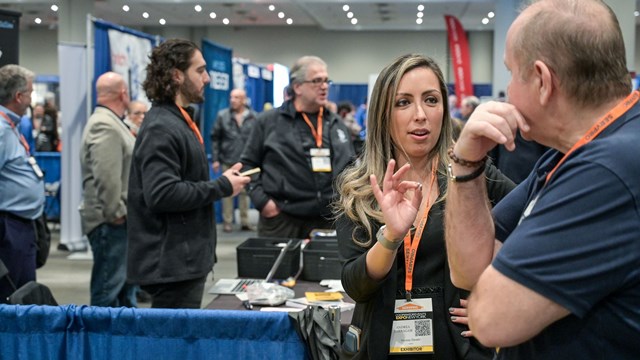In cities like Miami and Palm Beach, where even the most profligate among us may shed a tear or two at hotel room prices, the homesharing trend has grown by leaps and bounds. With more condo and HOA residents than ever renting out their units to short-stay vacationers, Floridians have found a new way to pocket more than a few extra bucks in this new part of the tourist economy.
If you're unfamiliar with services like Airbnb, this is how it works: homeowners and tenants alike can create a profile on the Airbnb website, much like a hotel on sites like Priceline or Expedia. The “bnb” in the name denotes the idea that users can rent a room in someone's home for a few nights in the style of a bed-and-breakfast. Rather than shell out for a cookie-cutter room from a non-descript hotel chain, users opt for the more personal, entrepreneurial spirit of homesharing.
Some Airbnbers may have an extra bedroom or pool house they rent out while they stay and play host for their guests. Others in very desirable high-rent parts of the country like Miami or New York may rent out their entire one-bedroom apartment for a few nights a month to help with their own rent, and simply stay at a friend's place in the meantime.
With much lower overhead than hotels, Airbnb hosts can make a very healthy profit with not too much work. Change a few bed sheets here, wash a few towels there, and you're done. Hosts and guests alike can rate one another as a way to add accountability to the system.
But, Airbnb-style homesharing poses some legitimate legal and safety concerns for its hosts, neighbors, and associations as a whole. Mauri Peyton, an attorney and founding member of the community association law firm of PeytonBolin in Fort Lauderdale, says “Due to the quick rise in popularity of short-term rental sites like Airbnb, very few associations have existing restrictions that deal with these rentals specifically. If an association lacks rental restrictions of any sort, or its rental restrictions are geared more towards traditional rentals, the association may have no ability to control such short term rentals."
Many associations have yet to really grapple with all the ramifications, including the potential illegality, or danger, of homesharing rentals. Generally, enforcement of laws against short-term leases only come into play when a complaint is made to city officials, to the board, or the management of an association. Especially in communities where renters and other new faces are fairly common, homesharing can go under the radar for years.
Another complication with Airbnb in Florida involves taxes aimed at the millions of tourists who come in the state every year. “If you have a rental that’s less than six months, that’s considered a short-term rental for tax purposes, and the Department of Revenue will require the collection of a Resort Tax, of which many landlords might not be aware,” says Jay Steven Levine, owner and founding shareholder attorney at Levine Law Group in Boca Raton. “With a normal residential lease, you don't have to pay a sales tax.”
Risk vs. Reward
Despite the fact that participating in Airbnb and similar homesharing services may mean a lot of trouble for unit owners, sometimes the financial rewards are so great—or so needed—that those troubles go ignored. In these instances, it’s important to consider the liability risks involved. What happens if something goes wrong, and who's ultimately responsible for making it right? These are important questions that homeowners need to understand before posting their apartment profiles and stocking up on guest towels.
The first hurdle is a big one: homeowner’s insurance policies are not designed to cover business enterprises, says says F. Michael Conte, a partner with Honig Conte Porrino Insurance Agency, Inc. in New York City. Should something go awry—an injury, say, or serious property damage as a direct result of the renter's presence in the unit—the question quickly becomes whether or not the insurance carrier will respond to or deny the claim. “Some will, some will grudgingly, and some will not cover the claim at all,” Conte says.
Kenneth Porter, ARM, co-founder of the sharing economy insurance firm Porter & Curtis, LLC in Media, Pennsylvania says, “There are significant implications, because the personal liability part of homeowners policies typically excludes or restricts coverage for business activities,” he says. “That may leave the insured exposed, and as a consequence create additional liability exposure for the condo.”
To clarify, “[Because] it's considered a business activity, the typical condo homeowner form excludes liability coverage for renting, except under the following circumstances: first, the rental is on an occasional basis, or second, the occupying family takes in no more than two boarders.” The caveat on item number one is that the term “occasional” is not defined, opening it up to a broad spectrum of interpretation by underwriters, unit owners and attorneys.
The difference for underwriters in insuring a hotel versus an enterprise like Airbnb comes down to statistics and risks. “Insurance prices are statistically driven,” says Conte. “They look at how many risks there are and what the severity is. A carrier that is insuring a hotel will price it to that exposure. The contract forms are basically the same, but it’s a matter of pricing that risk.”
Unfortunately, the uncertainty that surrounds Airbnb practices translates into similar uncertainty with insurance coverage. The temptation for some unit owners may be to quietly go about their rental business without informing their insurance carrier or broker. “People think they can just not reveal exposure and everything will be covered,” Conte says. That is not always the case.
Honesty may well be the best policy in pursing proper coverage. A broker might say, “We have identified an underwriter who will entertain this exposure—it’s a little pricier, but you’ll have protection,” says Conte. While costs might be higher out of the gate, they occur because of the uncertainty of the risk involved. “If you rent to an Airbnb guy, he may show up with a bull mastiff” and wreck the apartment, says Conte. “It’s uncontrolled risk exposure because you just don’t know what you’re getting.” That added cost may well pay off in the long run. At the very least, it should make it easier for unit owners to sleep at night.
It may be a necessity to protect the rest of the building’s residents, both from the risk of unknown guests and the risks of having an insurance policy terminated for the whole building. “On the building level, the contract wording would not exclude the claim of someone falling in a hallway or common area who is an Airbnb customer,” says Conte. “If the underwriter becomes aware of it, however, they can ban it, or double the building’s rates.” Whatever the specific response of the underwriter, it is almost guaranteed to cause some sort of an issue with future insurance service.
Airbnb itself tries to mitigate risk for those who join its service. Airbnb’s Host Protection Insurance “provides hosts (lessors) with $1,000,000 of general liability insurance protection for stays occurring in the United States,” says Porter.
The problem, says Conte, “is that the host liability is secondary, which means it kicks in after homeowner’s policy pays out. It’s not primary.” While some secondary policies take effect at 'dollar one,' “Others kick in [only] after out-of-pocket costs,” says Conte. “The wording of the policy will dictate when it kicks in.”
In order to mitigate risks for the lessor, “the lease agreement should require the guest to defend, indemnify, and hold harmless the lessor, owner (if subleased), and condo, for any and all liability arising from the leasing (or subleasing) arrangement,” says Porter. “In addition, the lessor should secure liability insurance covering their rental operations.”
However, notwithstanding the assurances of services like Airbnb, renters are in many cases protected from personal accountability for damages inflicted upon properties by individuals to whom they rent their homes, by stipulations of their lease agreements. Levine says, "When I draft documents, I put in the declaration that the landlord is strictly liable, in which case the tenant can go to the owner for reimbursement for the damages."
It's a lot to consider for a young couple who just want to help cover their mortgage costs by renting out the sofa bed for a few nights each month, as well as for boards who want to keep their residents happy. The important thing to remember is that money is changing hands, meaning it is a business. “If you want to go into business, you want to go in with your eyes open,” says Conte.
Perhaps the growing popularity of the service is enough that boards should consider proactive communication with their unit owners. While Airbnb does encourage potential hosts to familiarize themselves with state and city laws, boards also can remind their residents of the potential trouble they face should anything go wrong. The profits may be appealing, but the long-term costs can quickly outpace them—something anyone ready to jump on the Airbnb bandwagon should consider.
Elizabeth Lent is a freelance writer and a frequent contributor to The South Florida Cooperator. Staff writer Zak Block contributed to this article.





2 Comments
Leave a Comment